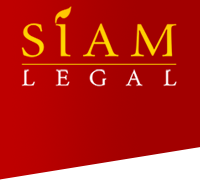Thai Criminal Procedure: Hearsay
As is the case in the criminal procedure laws of other jurisdictions, Thailand prohibits the use of hearsay evidence in criminal trials (Section 226/3 of the Criminal Procedure Code). Hearsay is generally defined as testimonial evidence of a statement not made before the Court which is meant to prove the assertion made in the statement itself. An example of hearsay would be testimony made by a witness in court that she was told by someone else that the defendant had committed the alleged crime and furthermore, the witness’ testimony of the statement is used to prove that the defendant in fact committed the crime. The reason that legal jurisdiction all around the world almost universally prohibit the use of hearsay evidence is due to the legal principle that the defendant has the right to cross-examine any testimony offered against him or her in a court of law. Since it is impossible for the defendant to cross-examine an out-of-court statement made against him or her, such evidence is therefore generally prohibited. The prohibition makes criminal trials more just in that it forces a party to bring the actual person who spoke the hearsay statement to offer the evidence himself or herself in Court. As it is used in the Thai legal jurisdiction, a few important points regarding the prohibition against hearsay.
A confession offered to the police by a defendant after he or she is arrested falls under the prohibition against hearsay and is not granted any weight by the court during trial. Furthermore, in the context where there is no eyewitness evidence that a defendant actually committed an alleged crime, written records of a defendant’s arrest, as well as written records of a defendant’s confession would be considered as hearsay evidence and prohibited.
Hearsay evidence may still be accepted if there other factors which indicate that the evidence is reliable, such as the nature, condition, or source of the evidence. Another exception is that hearsay evidence may be offered where it is impossible for the actual person who spoke the hearsay statement to appear in court to offer the statement himself or herself. The rationale for this rule is to prevent injustice in the case where a witness to a crime has been murdered by the defendant or has been prevented from offering the statement in some other manner.
Thai criminal law is complex. If you have been charged with a crime in Thailand, it is absolutely imperative that you seek the assistance of competent Thailand lawyers.
Category: Criminal Law, Litigation
About the Author (Author Profile)
Siam Legal is an international law firm with experienced lawyers, attorneys, and solicitors both in Thailand law and international law. This Thailand law firm offers comprehensive legal services in Thailand to both local and foreign clients for Litigation such as civil & criminal cases, labor disputes, commercial cases, divorce, adoption, extradition, fraud, and drug cases. Other legal expertise of the law firm varied in cases involving corporate law such as company registration & Thailand BOI, family law, property law, and private investigation.











